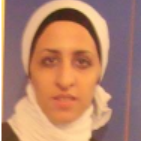
Sabria Hadj Tayeb
Work place: Département Mathématique/ Informatique Université des Sciences et de la Technologie d’Oran Mohamed Boudiaf, USTO-MB, BP1505, El M’naouar Oran, 31000, Algérie
E-mail: sabria.hadjtayeb@univ-usto.dz
Website:
Research Interests: Engineering
Biography
Hadj Tayeb Sabria: PhD student in Computer Science. Currently is Assistant Professor at the Height school in Electrical and Energy Engineering in Oran (ESGEE). Her research interests are in the field of ontology and interoperability in enterprises.
Author Articles
Measures for the Ontological Relations in Enterprise
By Sabria Hadj Tayeb Myriam Noureddine
DOI: https://doi.org/10.5815/ijmecs.2017.09.02, Pub. Date: 8 Sep. 2017
In order to improve a system performance, it is significant to estimate the exchange rate of relationships between components of the system, in particular when the considered system is production or service companies. Indeed, bad and inappropriate relationships can generate dysfunctions, slowdowns or, more generally, loss of performance in enterprise leading to a decline in growth and competitiveness.
Because of the heterogeneity of information and data, it is necessary to modeling relationships and ontologies are currently among the most evoked models in knowledge engineering. The aim is to define structured vocabularies, bringing together useful concepts of a domain and their relationships thus serving to organize, exchange information in an unambiguous way. Ontologies are widely applied to ensure semantic interoperability describing the enterprise structure and the exchange rate of existing relationships can be valued through their degree of effectiveness.
This paper presents measures for the ontological relations in the enterprise. Our approach aims first to extract the set of relationships from an ontology previously created, then classify these relations, according to two types giving a weighting to calculate their degree of effectiveness. The implementation process is proposed on the local enterprise of steel wire drawing processing, giving degree of effectiveness for existing relationships. A sensitivity analysis is done to compare and interpret the different results.
Other Articles
Subscribe to receive issue release notifications and newsletters from MECS Press journals